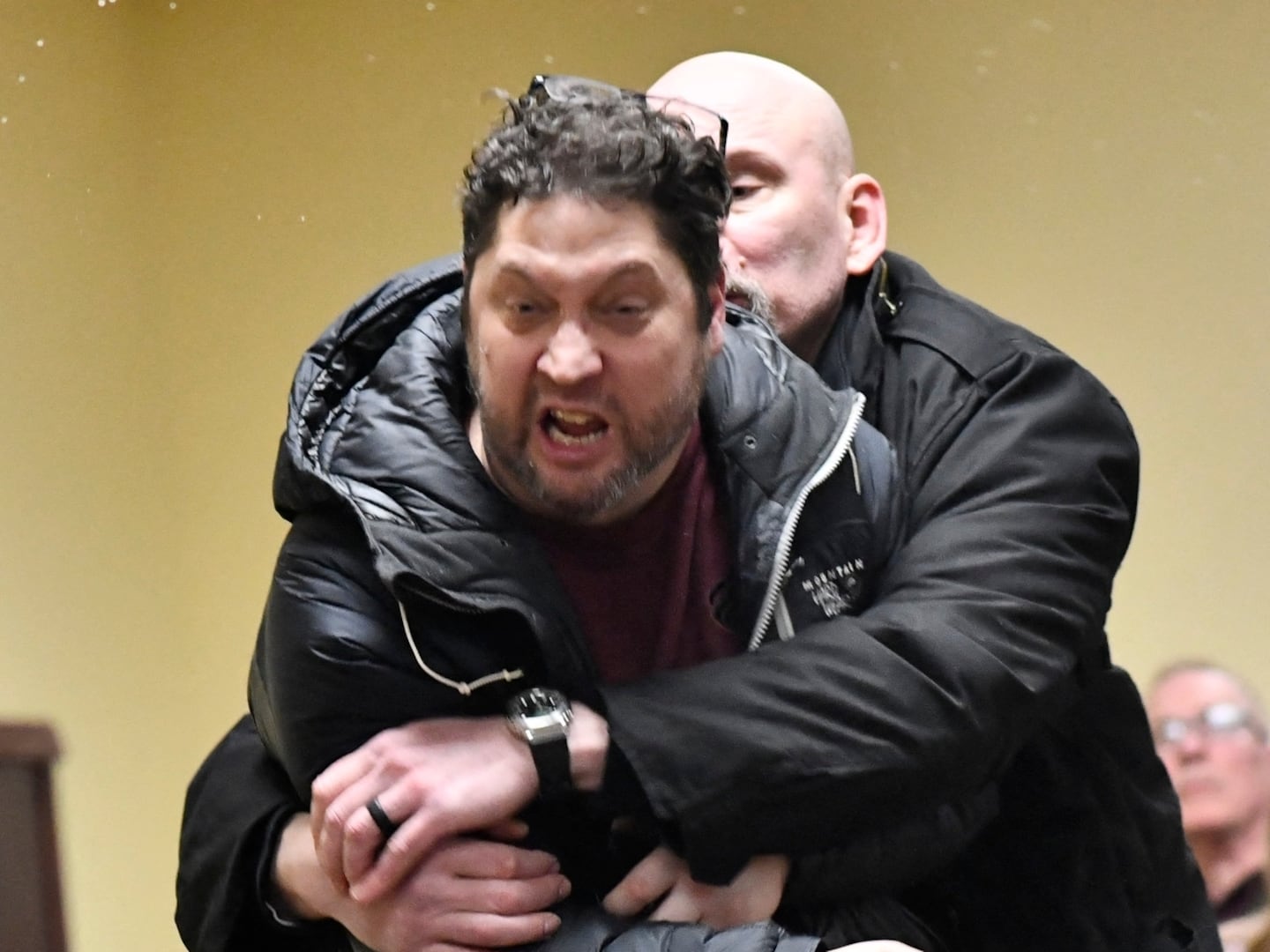At 85, Salem Rahil should probably be enjoying some quality time with his grandchildren. Instead, Rahil was toting an RPG launcher Monday at a checkpoint in Ajdabiya, the latest front in the ever-shifting war in eastern Libya. A jet dropped two bombs near a checkpoint on the opposite side of town Monday morning, leaving two large craters in the ground but no serious injuries. Rahil was undaunted. Decked out in a traditional robe and skullcap, he, like many of the younger fighters who make up the ragtag opposition army, hardly looked like he was ready for battle. But he was full of revolutionary bluster. “I will fight against any of [Muammar] Gaddafi’s forces,” he said defiantly.

These are tough times for Libya’s rebels. Nearly two weeks ago, the pumped-up fighters charged west toward Tripoli, taking over hundreds of miles of territory, surprising government troops and themselves. But the big push left them overextended and vulnerable. In the past week, Gaddafi’s forces have systematically rolled back the rebel advance through withering bombardment from jets, artillery, and even ships. At a press conference Sunday night in Benghazi, the de facto rebel capital, Abdul Fatah Younis, the chief of staff of the rebel force, tried to play down the loss. “War is a matter of advance and tactical withdrawal,” he said. But he later acknowledged that the bombing “has been able to wreak substantial damage on the ground.”
Ajdabiya, some 100 miles west of Benghazi, could turn out to be a decisive battle for the rebels. The city doesn’t have oil but it is strategically located, with roads branching off to the east, west, and south. If Gaddafi’s troops take Ajdabiya, which has a population of roughly 140,000, they could open up an additional front to attack Benghazi from the east and cut the city off from the Egyptian border. “Ajdabiya is a vital city,” Younis said at the press conference in Benghazi. And he said the rebel forces were digging in to keep control. “We do have our forces there and we will defend [Ajdabiya],” he said.
There were few signs of an organized defense in Ajdabiya on Monday. Opposition fighters beat a hasty retreat to the town Sunday night after a sustained assault by government loyalists in the oil port of Brega, 50 miles away. And it appeared that they were just barely starting to regroup. The main checkpoints east and west of the town were only lightly defended. A number of antiaircraft guns and pickups loaded up with heavy machine guns were scattered around town; additional ammo also was being brought in to some checkpoints. But there were no signs of trenches or sandbags, the hallmarks of a more conventional defense strategy.
Still, rebel leaders insist the city is beefing up its defenses covertly. Ali Faraj Hamad, a pudgy, bearded 34-year-old wearing a brown checked scarf, is the head of a “revolutionary committee,” a liaison body that coordinates between military and civilian officials in the city. He said inner and outer rings of defense have already been set up and that residents have enough supplies to last at least two months. Hamad’s biggest worry is airstrikes, like the ones that hit the city Monday morning. “If a no-fly zone is imposed, [Gaddafi] will never, ever be able to take Ajdabiya,” he said. Many of the rebels see a no-fly zone as the only way to even the odds against Gaddafi’s superior firepower, but the opposition fighters have been taking a heavy beating from artillery, GRAD rockets, and mortars as well.
“If a no-fly zone is imposed, [Gaddafi] will never, ever be able to take Ajdabiya,” said the head of the city’s revolutionary committee.
Conventional arms aren’t the only threat. The rebels also are concerned about Gaddafi loyalists—or “infiltrators,” as they call them—wreaking havoc in the city. A building housing a tailoring factory was torched in town Monday and a building belonging to the ministry of education was burned last week. Rebels blame both acts of arson on Gaddafi loyalists. And locals, including the imam of a local mosque, have been receiving phone threats. “[Gaddafi’s] rats are infiltrating the city,” said one local policeman who asked not to be identified for fear of being attacked by regime loyalists.
Such concerns are legitimate. Gaddafi fighters entered Brega on Sunday driving private cars and wearing civilian clothes. Izzedine AlFarsi, a 28-year-old doctor from Benghazi, was in Brega trying to recover a body from the street Sunday afternoon when he ran into one of these groups. “We went to them to ask for help moving the body,” he said. “They began shooting at us with a Kalashnikov. We were shocked.” AlFarsi and a handful of other volunteer doctors managed to escape unharmed and had regrouped at the hospital in Ajdabiya on Monday.
Gaddafi loyalists also are the likely culprits in the death of Ali Hassan Al Jaber, an Al Jazeera cameraman who was shot on Saturday afternoon. He and a handful of colleagues were returning from filming a protest just south of Benghazi when gunmen sprayed their car with bullets on the highway. A number of Western media organizations pulled their staff back to the city of Tobruk, near the Egyptian border, on Sunday.
That attack, along with concerns about an imminent government assault, has ratcheted up the sense of fear and paranoia among residents in Benghazi. A handful of alleged Gaddafi loyalists, some of whom appeared to be merchants or laborers from sub-Saharan Africa, were rounded up by armed rebels on Sunday. One man suspected of being a spy was yanked out of a parked car, beaten, and hauled away on the periphery of a street protest near the city center.
Despite the uncertainty, there is also a sense of defiance among the rebels. They are not about to let their uprising, which has now turned into a full-scale war, fade away. And that may have been what drew Rahil to the checkpoint at Ajdabiya on Monday. “We are going to stay and defend the city,” he said. “We are not going anywhere.”
Babak Dehghanpisheh is Newsweek's Beirut bureau chief. He's been covering the Middle East for Newsweek since 2001.






